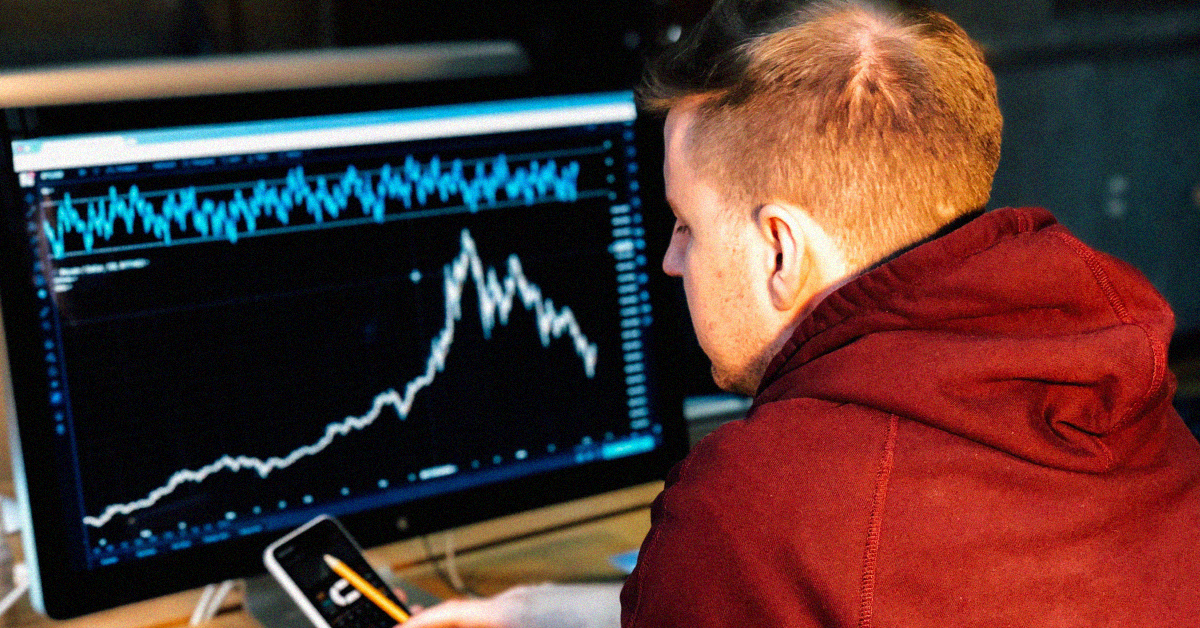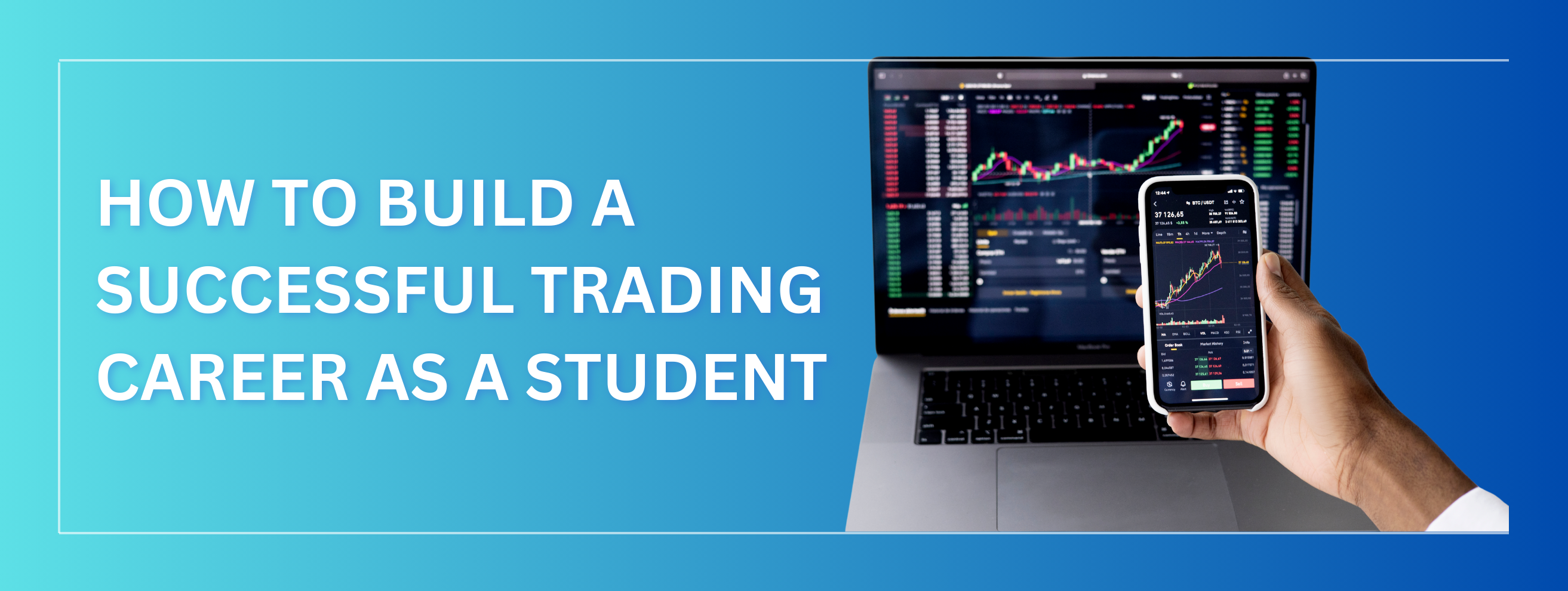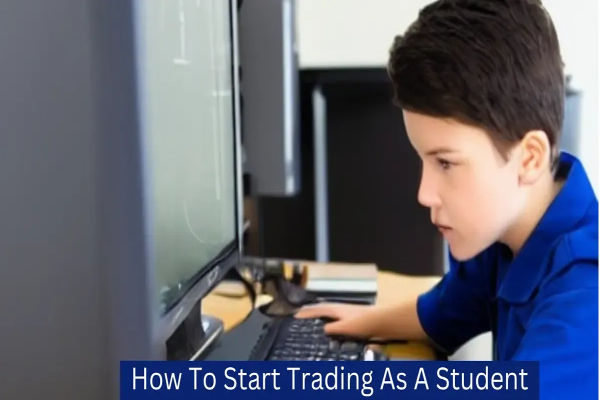In today's digital world, more students than ever are exploring financial markets and starting their trading journeys while still in college or university.
With easy access to online trading platforms, low account minimums, and a wealth of educational resources, student traders have never found it easier to begin their path toward financial literacy and independence. However, trading comes with significant risks and responsibilities, especially when you're managing limited time and funds.
In this guide, we'll walk you through everything you need to know to start trading as a student — including the best strategies, tools, risks, and practical tips to help you grow steadily and avoid costly mistakes.
Understanding the Basics of Trading

Before diving straight into the markets, it's crucial to grasp the fundamentals of how trading works.
1. What Is Trading?
Trading involves buying and selling financial instruments (stocks, forex or commodities) for short-term profit.
2. types of trading Markets
stock market: Shares of companies (e.g., Nvidia, Tesla)
Forex Market: Currency pairs (e.g., EUR/USD)
Commodities Market: Physical goods like gold, oil, or silver
3. Trading vs. Investing
Trading: Short-term, active approach focused on daily/weekly moves.
Investing: Long-term strategy based on fundamentals and growth.
Why Students Are Getting Into Trading
1. Financial Independence
Many students want to reduce reliance on parents or part-time jobs by earning money through trading.
2. Early Exposure to Finance
Trading provides practical, real-world experience in investing, economics, and risk management.
3. Low Entry Barriers
Free trading apps make it easy to start with small amounts of money.
4. Flexible Schedule
Students can trade part-time, fitting their activity around class schedules.
How to Start Trading as a Student: Step-by-Step Guide

1. Set Clear Financial Goals
Determine why you want to trade:
This will shape your trading strategy and risk profile.
2. Educate Yourself First
Knowledge is your most powerful asset. Study:
Market structure
Technical analysis (charts, indicators)
Fundamental analysis (earnings, news)
Trading psychology
Free Resources:
3. Choose Your Market
Pick a market that matches your interest and time availability:
Stocks: Best for beginners
Forex: 24-hour market, suits flexible schedules
Options: Advanced, not recommended for absolute beginners
4. Select a Reputable Broker
Look for a regulated platform with low fees and a user-friendly interface. For students, crucial factors include:
5. Start With a Demo Account
Practice in a risk-free environment before trading real money. A demo account helps you:
6. Fund Your Trading Account Wisely
Only use surplus savings — never borrow money to trade or use your tuition funds. Start with as little as $50–$200 if the broker allows.
7. Pick a Simple Trading Strategy
As a beginner, keep it simple:
Swing Trading: Hold trades for days or weeks
Trend Following: Buy when the market is moving up
Breakout trading: Enter when the price moves out of a range
Support and Resistance: Buy at demand zones, sell at supply zones
Tools Every Student Trader Should Use
| Tool |
Purpose |
| Charting Platforms |
Analyse price action |
| Economic Calendar |
Track news events |
| News Feed |
Stay updated on markets |
| Learning Apps |
Learn on the go |
| Budgeting Tools |
Manage your funds |
Best Trading Strategies for Students
1. Swing Trading
Ideal for: Busy students with class schedules
Timeframe: 4-hour to daily charts
Tools: Moving averages, RSI, MACD
Goal: Catch short- to medium-term moves
2. Day Trading (with Caution)
Ideal for: Students with flexible schedules
Timeframe: 1-minute to 15-minute charts
Risk: High; not recommended for beginners without practice
3. Position Trading
Ideal for: Long-term thinkers
Timeframe: Weekly/monthly charts
Goal: Invest based on fundamentals
4. Copy Trading or Social Trading
Ideal for: Those who want to learn by watching professionals
Platforms: EBC Financial Group
Note: Still carries risk; choose reliable traders with verified performance
Pros and Cons of Trading as a Student
| Pros |
Cons |
| Early financial experience |
High risk of losing money |
| Low capital requirements |
Emotional stress |
| Potential for high returns |
Can distract from studies |
| Develops discipline and analytical skills |
May lead to addiction or overtrading |
Final Tips

Lastly, there is no guaranteed income in trading. Early on, focus on:
Learning the process
Avoiding major losses
Building discipline
Not treating trading like gambling
Starting slow, build confidence, and stay consistent
Investing in your education before risking real money
Learning from your mistakes — they're part of the process
If you become consistently profitable, you could scale slowly over time. Think of trading more like a skill to master — not a get-rich-quick scheme.
Conclusion
In conclusion, starting your trading journey as a student can be both exciting and rewarding if approached the right way. With discipline, education, and proper risk management, trading can teach you valuable life skills and potentially open the door to financial opportunities.
However, remember that trading is not a guaranteed income source — especially when you're just starting. Your priority should still be your studies, with trading as a side pursuit for personal growth, learning, and long-term wealth building. Start small. Stay smart. And always keep learning.
Disclaimer: This material is for general information purposes only and is not intended as (and should not be considered to be) financial, investment or other advice on which reliance should be placed. No opinion given in the material constitutes a recommendation by EBC or the author that any particular investment, security, transaction or investment strategy is suitable for any specific person.




























